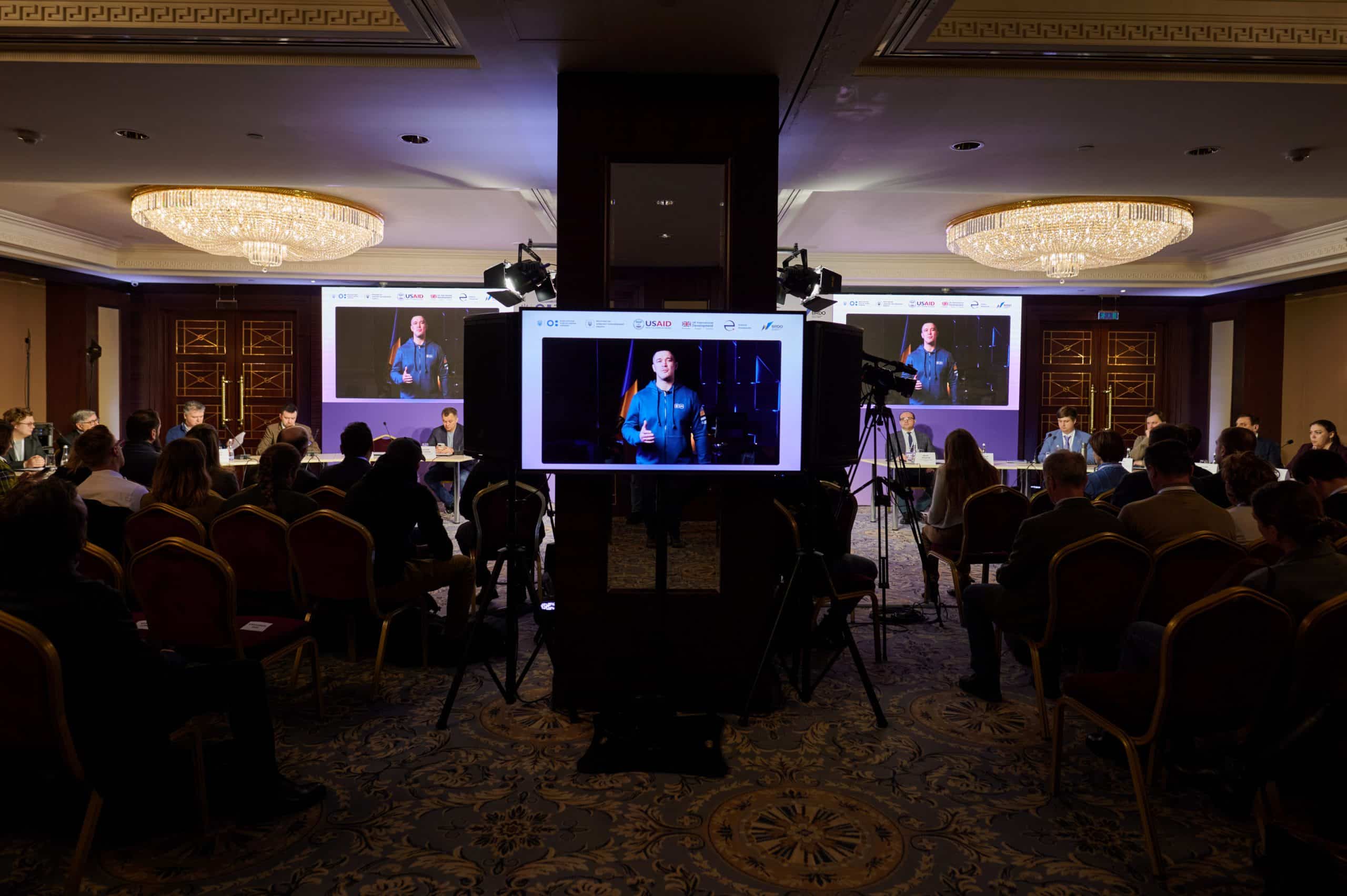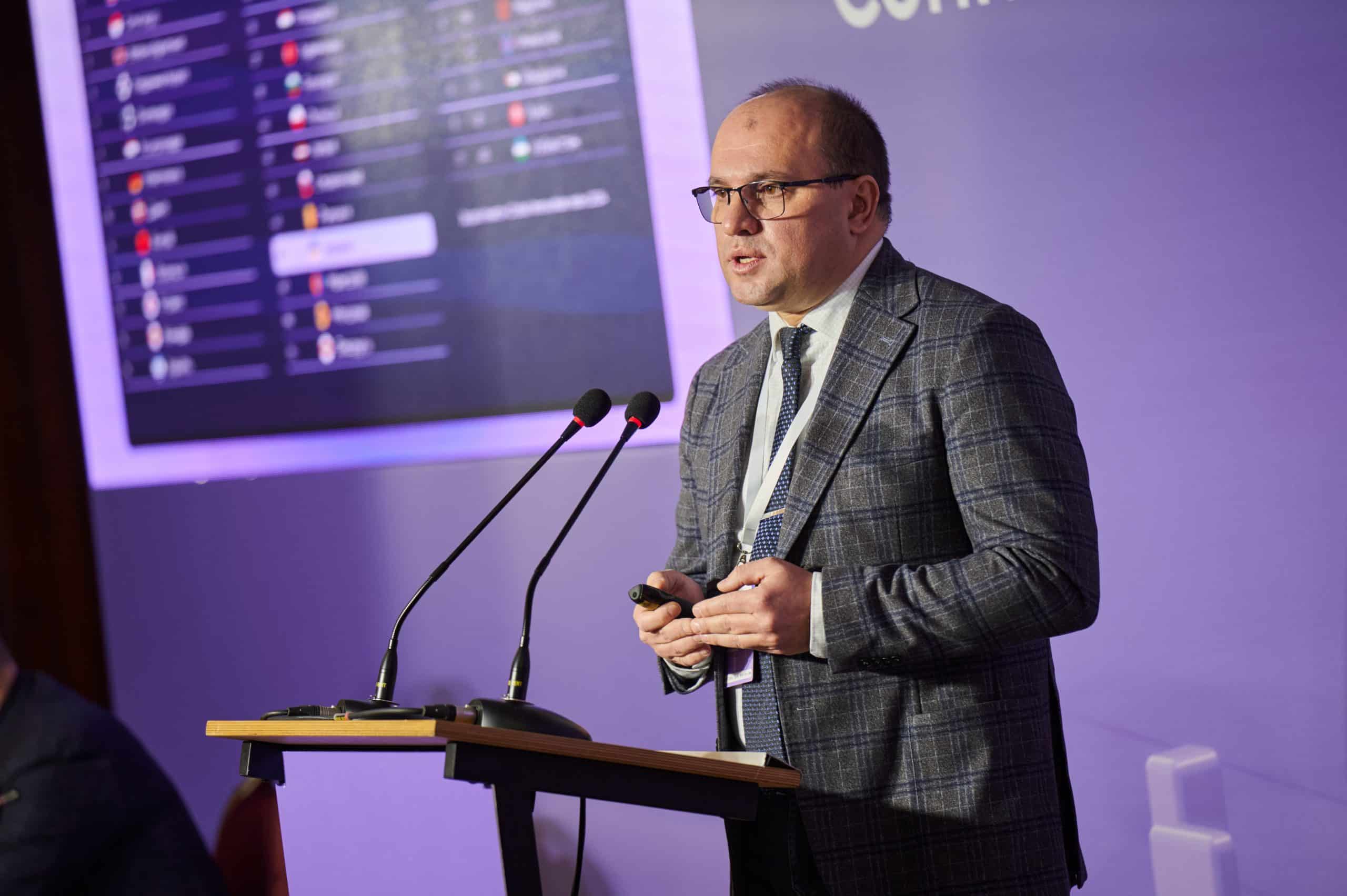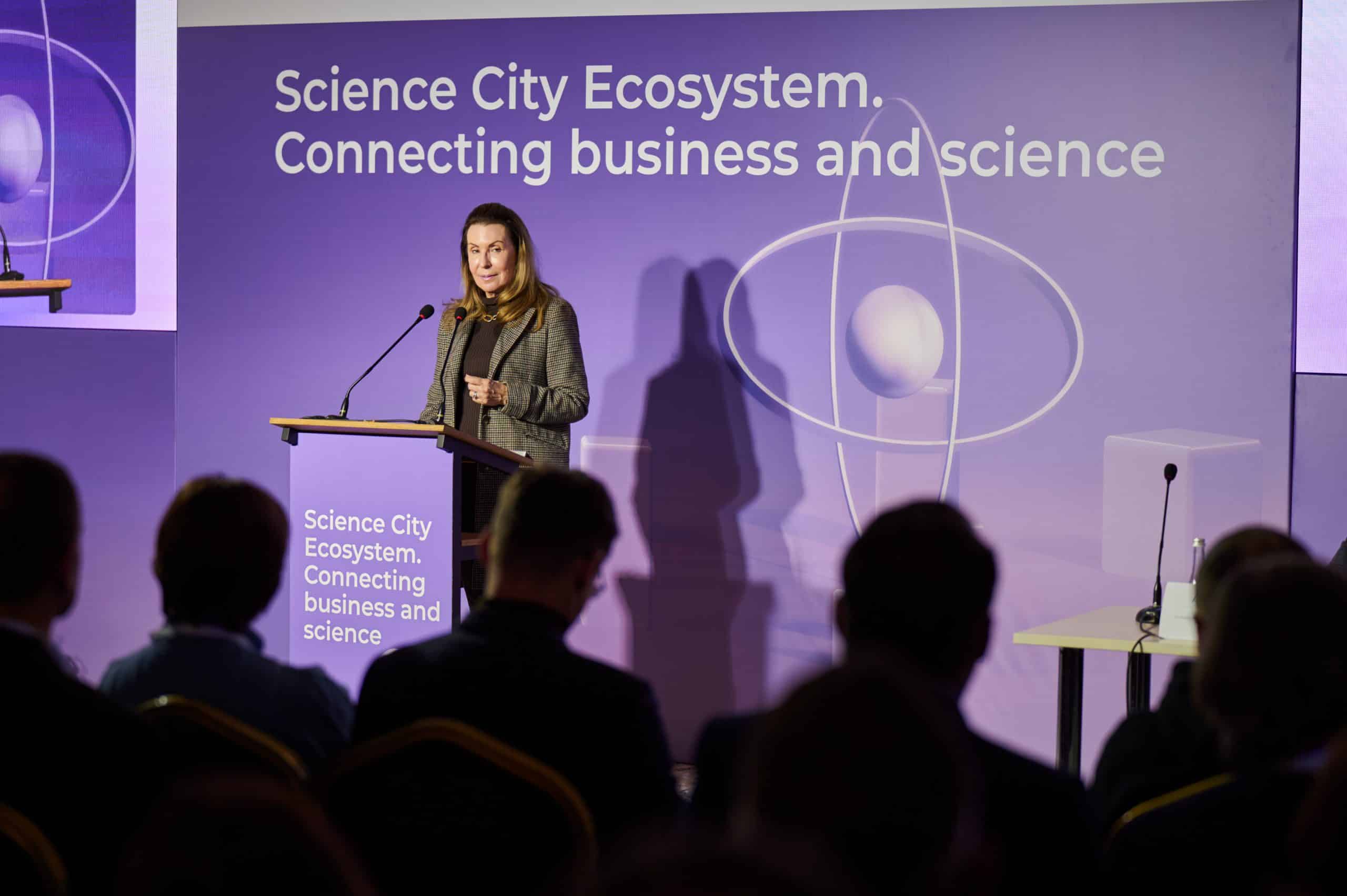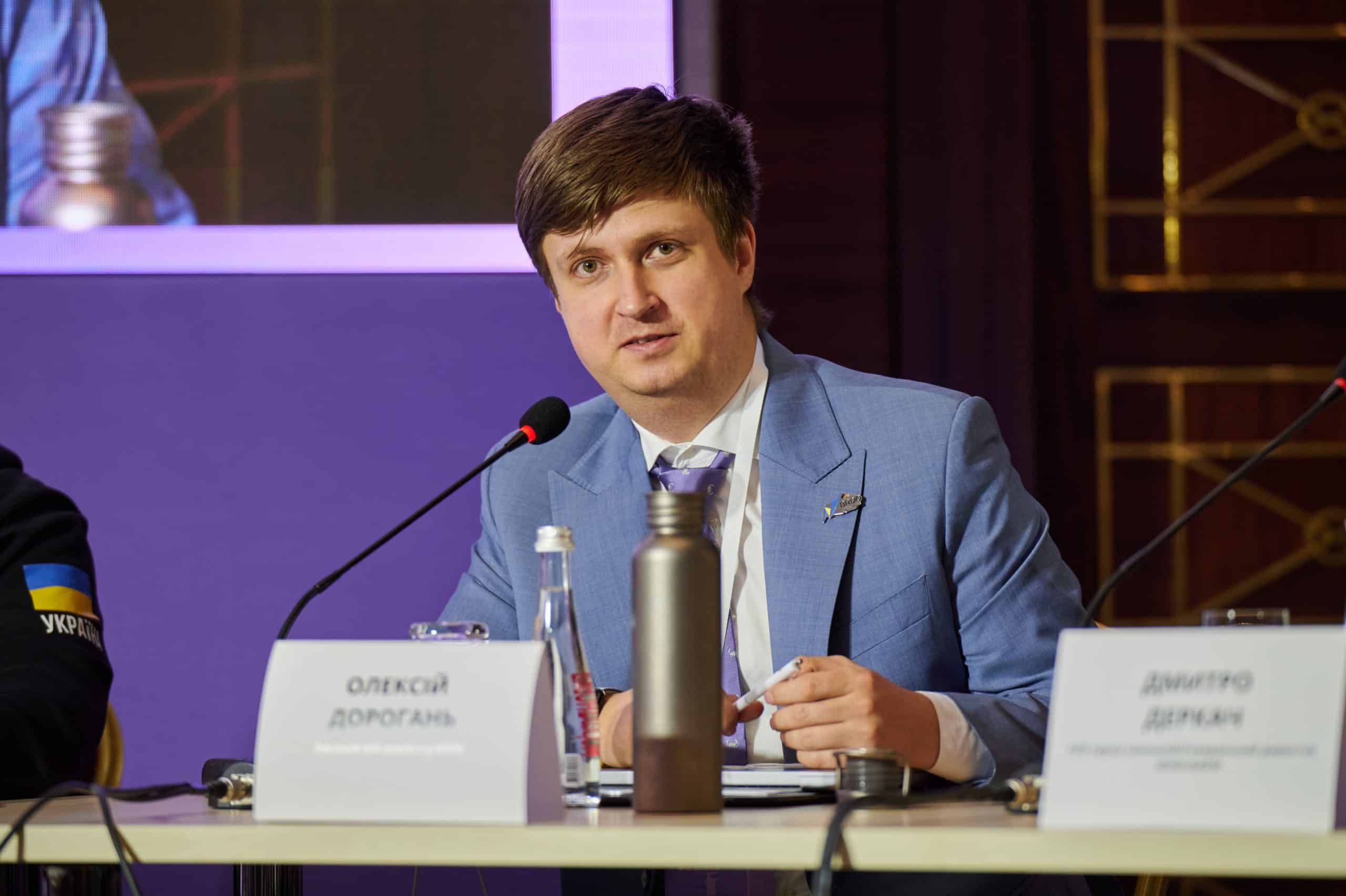On January 15, 2025, the event “Science City Ecosystem. Connecting Business and Science” was held in Kyiv to present the Science.City, one of the pivotal initiatives under WININ 2030 – Ukrainian Global Innovation Strategy. With over 100 participants, including representatives of the government sector, the scientific community, innovative businesses, and international organizations, the event spotlighted the transformative potential of science parks to drive Ukraine’s economic and technological advancement.
The Science.City initiative aims to merge the strengths of science, business, and government into a cohesive network of modern science parks. These parks will serve as incubators for innovations, launching startups, and attracting global investment.
“Innovations are the core of the country’s economic growth and competitiveness. But without proper education, their development is impossible. That is why the transformation of the education system is one of our key priorities, and the creation of effective science parks is an indispensable part of this process. Currently in Ukraine there are 37 registered science parks, only 5 of which are holding innovative activities. That is why we are working on the Science City project, which will become a catalyst for the development of science parks, create conditions for the interaction of science, education and business, ensuring transparency and support at every stage of development,” commented Mykhailo Fedorov, Deputy Prime Minister for Innovation, Education, Science and Technology Development – Minister of Digital Transformation of Ukraine.

Science parks, anchored in educational and research institutions, hold immense potential as catalysts for innovation and the transformation of scientific ideas into tangible production outcomes. However, their potential remains largely untapped due to several critical barriers: high fiscal pressure, cumbersome and prolonged procurement processes, restrictive regulations, and limited engagement with private capital.
“A science park is not just a tool for developing innovations in higher education and research institutions, but a ground for the future, in which Ukrainian science is competitive on the global scale. With this reform, we will not only reduce the outflow of intellectual capital from science to the private sector, but also establish a convenient legal mechanism for effective interaction between science and business. The proposed changes pave the way for digitalization and transparency in the area of science, turning science parks into drivers of economic growth in Ukraine,” said Oksen Lisovyi, Minister of Education and Science of Ukraine.

To address these barriers, the event presented draft legislature changes developed by the Ministry of Education and Science of Ukraine in cooperation with the BRDO and supported by the Digital Transformation Activity financed by USAID and UK Dev. The proposed changes aim to create a more supportive environment for innovation by reducing tax burdens, simplifying registration procedures, introducing equipment import incentives, and integrating science parks into the Diia.City legal framework.
“Science parks act as catalysts for innovation, promoting the introduction of the most recent technologies, products and services created in universities and research institutes. Legislative changes will help significantly intensify their activities, providing conditions for effective technology transfer and commercialization of research results. In the context of modern challenges such as globalization, digital transformation and war, the development of science parks is a strategic step to ensure sustainable development and competitiveness of Ukraine, creating a national economy of innovative type,” said Denys Kurbatov, Deputy Minister of Education and Science of Ukraine.

Special attention was dedicated to tax incentives that will help attract private capital to research and development. These initiatives will help to reduce the research costs and accelerate the introduction of new technologies to the market.
“Support for science parks contributes to the development of high-tech sectors of the economy, job creation in knowledge-intensive industries, and investment attraction. All these goals reflect the concept behind Diia.City. That is why we see the extension of the Diia.City space to cover science parks as an important step towards strengthening Ukraine’s economy in the face of global competition,” said Oleksandr Borniakov, Deputy Minister of Digital Transformation of Ukraine.
International partners underscored the critical role of the project for Ukraine’s economic recovery. They highlighted that Science.City holds immense potential to establish Ukraine as a regional innovation leader, drawing substantial investments and generating employment opportunities in cutting-edge, high-tech industries.
“By broadening partnerships and streamlining processes, Science.City will attract private sector investments, establish regional innovation centers, and increase scientists’ incomes—helping Ukraine achieve the ambitious goals of its Win-Win 2030 strategy”, said USAID Mission Director in Ukraine Julie A. Koenen.

“Science.City can be vital in integrating Ukraine into the global high-tech market and engaging international partners in joint projects. In the face of the ongoing Russia’s full-scale invasion and war against Ukraine, the country’s economy requires innovative approaches to bolster development and resilience. Science parks have the potential to play a significant role in achieving this goal, by fostering innovation, creating synergies across various fields, and supporting the country’s recovery and growth”, said Stefan Kossoff, Director of Development Programmes at the British Embassy in Ukraine.

By creating favorable conditions for the institutionalization and functioning of science parks, the adoption of the draft law is expected to comprehensively reform the higher education and research institutions’ innovation activities and initiatives. This will increase the number of active science parks from 5 to 15 in three years, attract UAH 500 million in investments and increase the revenues of higher education and research institutions to UAH 750 million annually. The implementation of these initiatives will also create more than 1500 new jobs in the science and technology sector.
“Science parks are not just territories, but powerful innovation ecosystems where science, education, and business unite to create the future. They are the driving force for economic growth, as the new technologies and business models are being born here. In the science park based on Lviv Polytechnic National University we have successfully implemented a model of technology transfer not only from university to business, but also from business to university. It is done with the aim of transforming education in a way that the trained specialists would be capable not only to generate ideas, but also to implement them, create new research groups and schools. Only through tight cooperation between universities, research institutions and businesses will we be able to build an innovative economy competitive at a global scale”, said Nazar Podolchak, Director of science park at Lviv Polytechnic National University.

The event was organized by the Ministry of Education and Science of Ukraine in cooperation with the Ministry of Digital Transformation of Ukraine and made possible by the Digital Transformation Activity with support from USAID and UK Dev. BRDO is the partner for this event.